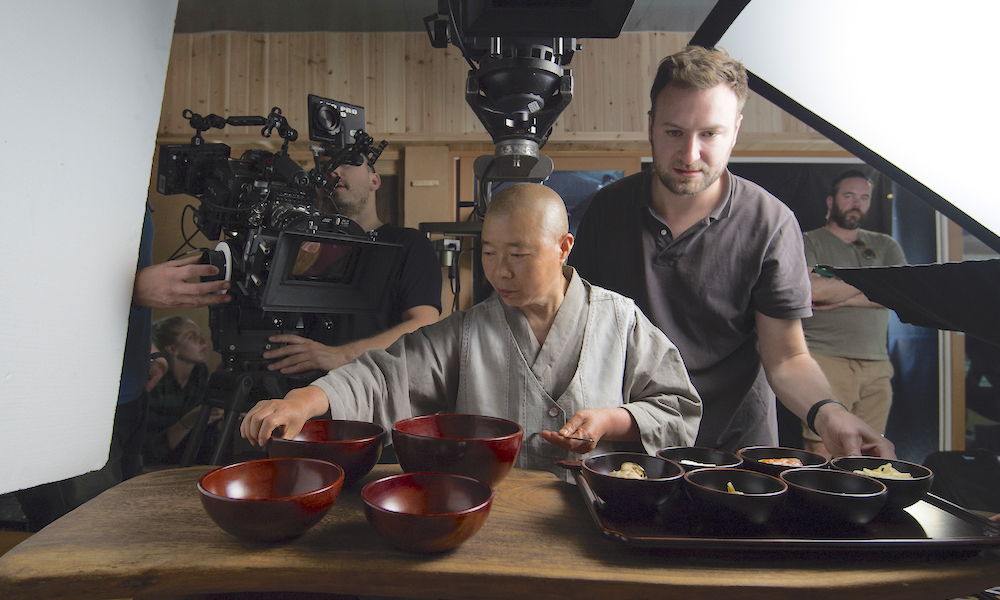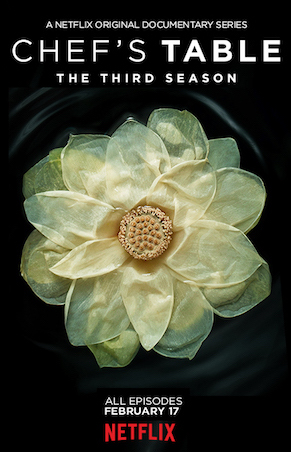Chef’s Table Season 3

Chefs are artists, plain and simple. They are unique from other creatives in the sense that their art can literally be consumed and enjoyed by those lucky enough to come across it. In Netflix’s Emmy-nominated docu-series Chef’s Table, we have the distinct pleasure of delving into the hearts and souls of some of the most exciting chefs of the moment. The binge-worthy series returns with a third season that continues to captivate, titillate and leave us wanting more.
Creator David Gelb has been wise to select a line-up of chefs with diverse backgrounds and qualifications. This season follows suit, including two picks who could very easily be polar opposites of one another. Tim Raue, of his namesake restaurant Restaurant Tim Raue, is a self-proclaimed egocentric. His disposition is by no means baseless and the fruits of his labour are evidenced in his collection of Michelin stars and Gault-Millau points – not to mention his 34th position in the World’s 50 Best Restaurants list. As an intimidating and impressive force in the kitchen, one is surprised at his complete candor when speaking about his troublesome childhood and difficult transformation from tough street-kid to the most renowned chef in Berlin. After essentially revolutionising the fine-dining scene in the German capital, his place as culinary royalty is solidified for the foreseeable future.
On the other end of the spectrum, one chef featured doesn’t even consider herself a chef. Jeong Kwan is a Buddhist nun and fantastic cook. She resides at the Baekyasa Temple outside of Seoul, South Korea, and first appeared on the global radar after catching the attention of world-renowned chef Eric Ripert, with her simple, clean dishes that resonate with the most pure form of food. For Kwan, food is a gift from the earth and cooking an expression of gratitude. In harnessing the energy of every ingredient, she brings a unity to her dishes which makes them utterly divine. We watch as she pickles roots into a rainbow of different colours, as she pulls fermented cabbage from underneath the ground, as a lotus unfolds into tea for her. And as we watch, we are not so surprised but nonetheless intrigued by her fascinating story of how she came to live her life at the temple and how cooking has become a mechanism of enlightenment. As a famed chef without a restaurant, Jeong Kwan is redefining the game.
Virgilio Martinez, Central (Lima, Peru), Vladimir Muhkin, White Rabbit (Moscow, Russia), Ivan Orkin, Ivan Ramen (New York, NY) and Nancy Silverton, Osteria Mozza, (Los Angeles, CA) are the subjects of the rest of the episodes.
For a foodie, this series is heaven for obvious reasons. For everyone else, it’s a fascinating, raw exploration of what makes these chefs tick. At a time when the majority of food-related programming is highly commercialised, consumer-oriented cooking shows and celebrity chefs, Chef’s Table comes as a breath of fresh air. Season three continues to push boundaries and continues to deliver exciting, provocative content at an impressive level of cinematic excellence. We get to see the artists in their elements, and that’s exactly how it should be.
Zoe Tamara
Chef’s Table Season 3 is available exclusively on Netflix from 17th February 2017.
For further information about the 67th Berlin Film Festival visit here.
Read more reviews from the festival here.
Watch the trailer for Chef’s Table Season 3 here:



























Facebook
Twitter
Instagram
YouTube
RSS